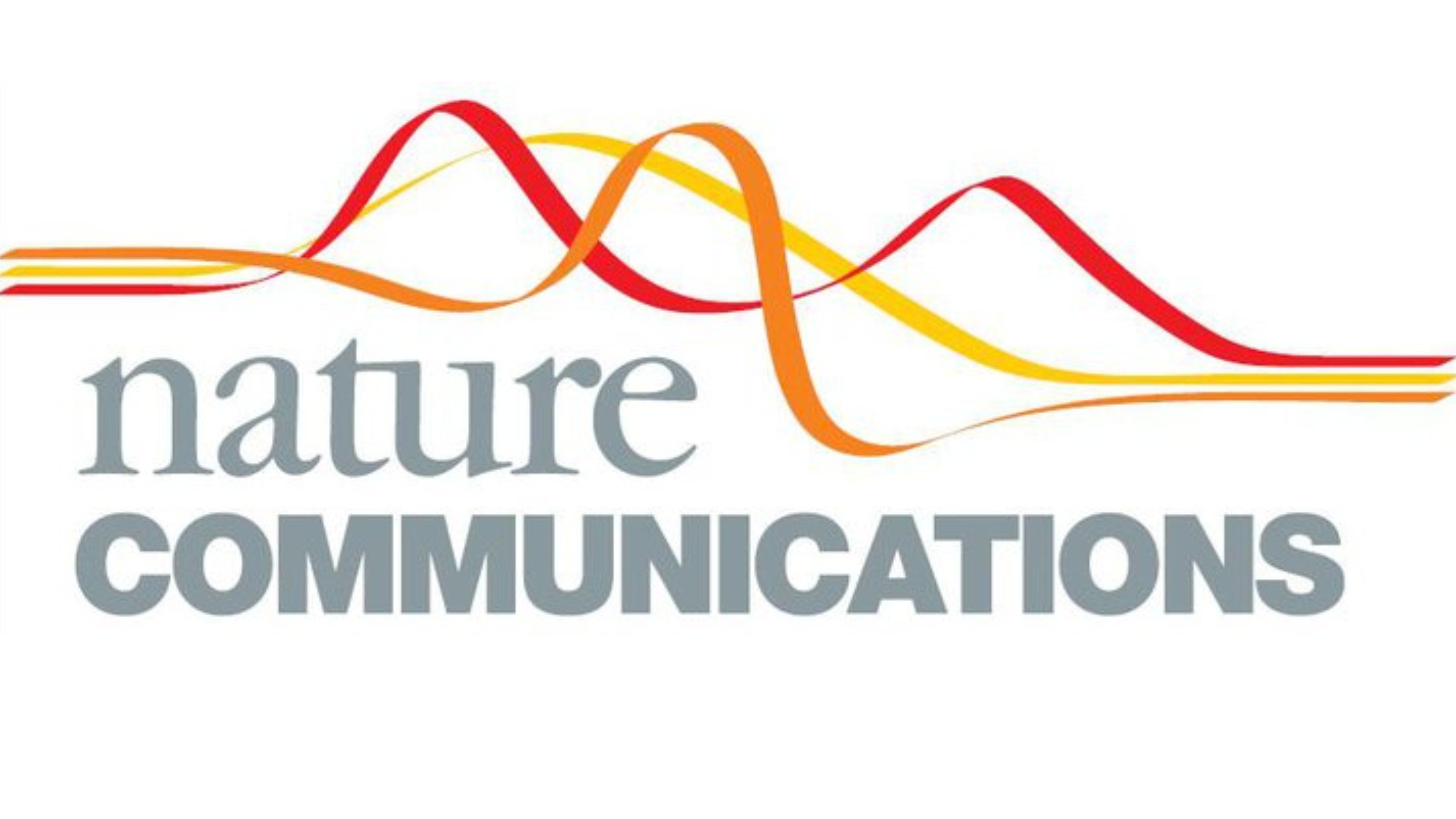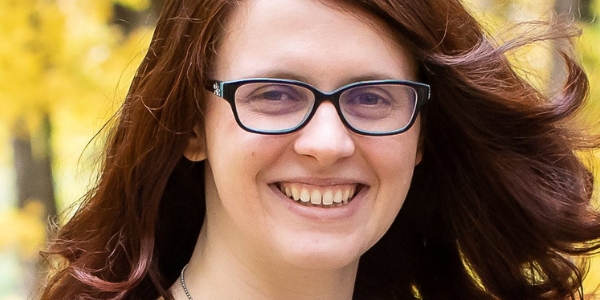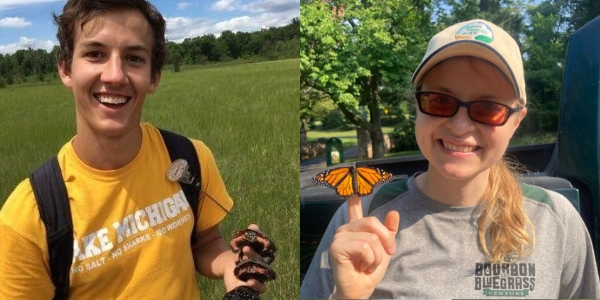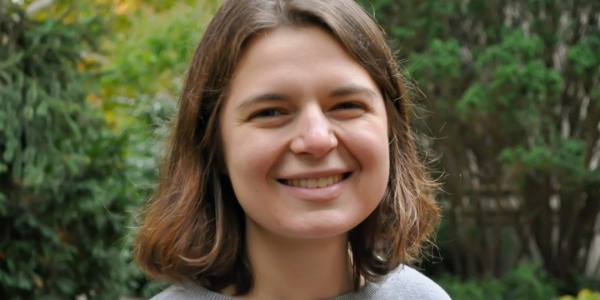Three EEB members recognized for research and teaching excellence
Three EEB members are recognized in this year's All-University Awards for their contributions to the university and their fields of research.
William J. Beal Outstanding Faculty Award
Kendra Spence Cheruvelil's aquatic ecology research formed the basis of landscape limnology, a subdiscipline of ecology focused on the spatially explicit study of lakes, streams and wetlands as they interact with freshwater, terrestrial and human landscapes to determine the effects of pattern on ecosystem processes. As co-director of MSUs Data Intensive Landscape Limnology Lab, she conducts big-data research on lakes to understand how global climate change, land-use intensification and the spread of non-native species affect lakes across regions and continents.
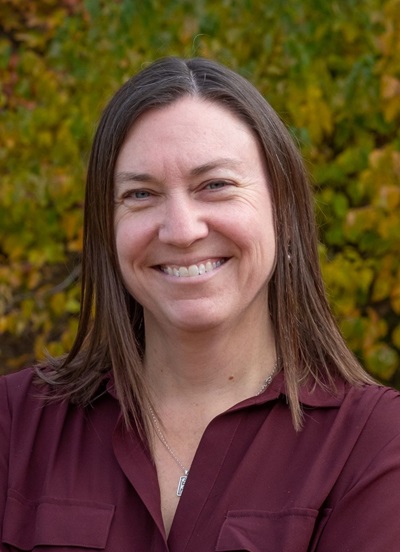
Cheruvelil, a professor of fisheries and wildlife and interim dean of Lyman Briggs college, also conducts research on how scientific teams can work together more effectively to promote successful interdisciplinary collaborations. After years developing tools and approaches for creating an inclusive and productive research climate for her teams, she worked with a group of scholars to synthesize the literature and write a paper as a guide for other ecologists, particularly team-leaders. Instead, she created an important theoretical foundation arguing for a focus on team-diversity, inclusion and interpersonal skills.
Taking this research to the next level, she published a second article postulating that team science was part of a broader suite of emerging ways of doing science that are integrally connected – Team Science, Open Science and Data-intensive Science. She posed that they form an essential part of many contemporary data-intensive research that is usually highly collaborative and demonstrate the importance of diversity in science teams. This paper was selected as the Editors Choice article in BioScience in 2019.
A creative and scholarly educator, Cheruvelil implements innovative and evidence-based teaching practices, studies the effects of these interventions on student learning and classroom climate, and then assesses her performance relative to these standards. She has revolutionized the way that Lyman Briggs teaches introductory biology labs by creating a substantive team-based, semester-long research experience for students. Cheruvelil has trained future faculty by supervising dozens of undergraduate and graduate teaching assistants, and by developing workshops that help course assistants make their classrooms more inclusive.
Excellence-in-Teaching Citations
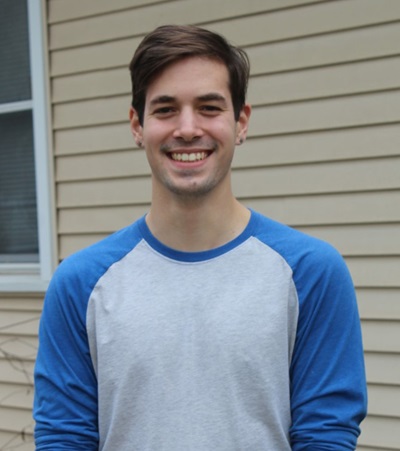
Darren Incorvaia, a graduate student in the Department of Integrative Biology, has demonstrated unparalleled excellence in teaching. In 2020, he led every aspect of a self-created ecology course on the environment around the Great Lakes. He created the course content and syllabus, and led every aspect of the honors section, including discussions and evaluations. With the goal of providing high-level content, he oriented discussion around an acclaimed book, The Death and Life of the Great Lakes, which considers the principles of ecology and how they relate to real-world issues. He added readings about different audiences (privileged and underprivileged, for example) affected by environmental change, seamlessly incorporating topics of diversity, equity and inclusion in a science course.
During the pandemic, Incorvaia's teaching exceeded expectations. As one student remarked:USDA grant to support blueberry pest management strategiesThe spring semester faced its fair share of challenges; because of Darren's creativity and dedication, the challenges had almost zero impact on my ability to learn and enjoy the course. Darren's adaptability and passion still shined, even through a computer screen. Over three years teaching nearly 700 students, Incorvaia has received consistent recognition as a top-notch TA. He received the Harlow Mervyn Mork Excellence-in-Teaching Award in 2019.
Additionally, Incorvaia's research explores how bumblebees adjust their foraging behavior in response to changes they experience in foraging conditions outside the nest and in the nutritional state of the colony. Through his research, he is answering long-standing, and often contentious, questions about the pressures of natural selection that led to the evolution of the famous honeybee dance language. He has completed three summers of fieldwork, has four peer-reviewed publications and has given more than ten presentations — two of which were invited.

Christopher Warneke, a graduate student in plant biology, is a guide for students, assisting their mastery of course material and development as critical thinkers and life-long learners. An extremely knowledgeable plant biologist and ecologist, he is deeply knowledgeable about the material he teaches and is committed to student learning. After participating in a seminar focused on science teaching, he has mindfully implemented such student-centered approaches as minute papers, think-pair-share and other group work in his classes, always integrating course material with a focus on student engagement and professional skill development, such as collaboration, scientific communication and idea synthesis.
Warneke's teaching goes beyond the material by helping students to improve their own ability to acquire and to evaluate new information, resulting in students who not only master class material but also become lifelong learners. As one of his students noted, Warneke uses class time to focus on the process of learning and engaging with the material, which allows students to continue learning on their own after completing the course.
Additionally, Warneke is an excellent researcher and contributes significantly to the life of his department and program. His carefully conducted, well replicated, and systematic research explores plant recovery following human disturbances and demonstrates excellence in experimental design, field natural history, data analysis and scientific communication. He has given more than a dozen presentations on his research, including five at the Ecological Society of America Annual meeting, and two invited seminars. He has published a paper in Ecological Applications and has submitted a second manuscript for peer review, with two additional papers in preparation.
Active in serving his department, Warneke has been instrumental in instituting a peer-mentoring program to help with retention of plant biology students from underrepresented groups in the sciences. He also mentors undergraduates on their independent research projects, helping them to bridge the gap between the classroom and research.
The MSU Awards Convocation for 2021 recipients will be scheduled next year due to the pandemic.
Read the full awards story in MSU Today.
